Filter by
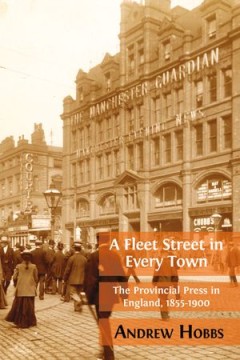
A Fleet Street In Every Town :The Provincial Press in England, 1855-1900
"At the heart of Victorian culture was the local weekly newspaper. More popular than books, more widely read than the London papers, the local press was a national phenomenon. This book redraws the Victorian cultural map, shifting our focus away from one centre, London, and towards the many centres of the provinces. It offers a new paradigm in which place, and a sense of place, are vital to the…
- Edition
- -
- ISBN/ISSN
- 9781783745616
- Collation
- 469 hlm
- Series Title
- -
- Call Number
- -

Tech giants, artificial intelligence, and the future of journalism
- Edition
- -
- ISBN/ISSN
- 9781351013758
- Collation
- -
- Series Title
- -
- Call Number
- -
- Edition
- -
- ISBN/ISSN
- 9781351013758
- Collation
- -
- Series Title
- -
- Call Number
- -

State-sponsored disinformation around the globe: how politicians deceive thei…
Introduction : deceiving from the top : state-sponsored disinformation as a contemporary global phenomenon / Martin Echeverría and Sara García Santamaría -- Theoretical understanding of state-sponsored disinformation / Petros Iosifidis -- Rethinking disinformation for the global South : towards a particular research agenda / Grisel Salazar Rebolledo -- Statistics and state-sponsored disin…
- Edition
- -
- ISBN/ISSN
- 9781032632940
- Collation
- -
- Series Title
- -
- Call Number
- -

Innovations in journalism :comparative research in five European Countries
- Edition
- -
- ISBN/ISSN
- 9781032630410
- Collation
- -
- Series Title
- -
- Call Number
- -
- Edition
- -
- ISBN/ISSN
- 9781032630410
- Collation
- -
- Series Title
- -
- Call Number
- -

SOCIAL MEDIA AND DIGITAL POLITICS: networked reason in an age of digital emotion
- Edition
- -
- ISBN/ISSN
- 9781003386377
- Collation
- -
- Series Title
- -
- Call Number
- -
- Edition
- -
- ISBN/ISSN
- 9781003386377
- Collation
- -
- Series Title
- -
- Call Number
- -
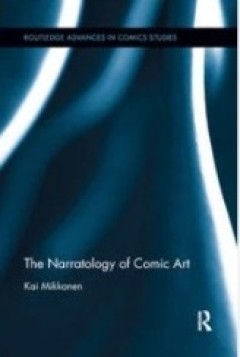
The Narratology of Comic Art
By placing comics in a lively dialogue with contemporary narrative theory, The Narratology of Comic Art builds a systematic theory of narrative comics, going beyond the typical focus on the Anglophone tradition. This involves not just the exploration of those properties in comics that can be meaningfully investigated with existing narrative theory, but an interpretive study of the potential in …
- Edition
- -
- ISBN/ISSN
- 9781315410128
- Collation
- 324 halaman
- Series Title
- -
- Call Number
- 700 MIK n
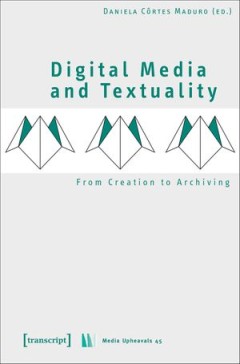
Digital Media and Textuality : From Creation to Archiving
Due to computers' ability to combine different semiotic modes, texts are no longer exclusively comprised of static images and mute words. How have digital media changed the way we write and read? What methods of textual and data analysis have emerged? How do we rescue digital artifacts from obsolescence? And how can digital media be used or taught inside classrooms? These and other questions…
- Edition
- -
- ISBN/ISSN
- 9783839440919
- Collation
- 284 halaman
- Series Title
- -
- Call Number
- 302 DIG
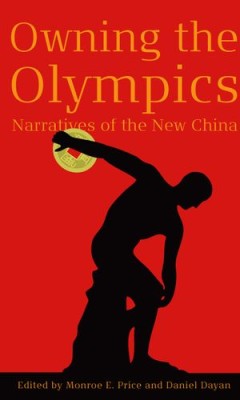
Owning the Olympics: Narratives of the New China
A major contribution to the study of global events in times of global media. Owning the Olympics tests the possibilities and limits of the concept of 'media events' by analyzing the mega-event of the information age: the Beijing Olympics. . . . A good read from cover to cover." —Guobin Yang, Associate Professor, Asian/Middle Eastern Cultures & Sociology, Barnard College, Columbia UniversityFr…
- Edition
- -
- ISBN/ISSN
- 9780472900497
- Collation
- -
- Series Title
- -
- Call Number
- 951 OWN o
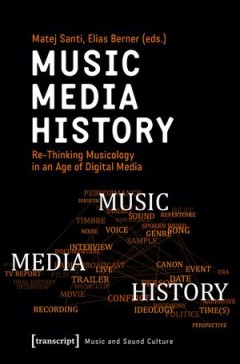
Music - Media - History: Re-Thinking Musicology in an Age of Digital Media
Music and sound shape the emotional content of audio-visual media and carry different meanings. This volume considers audio-visual material as a primary source for historiography. By analyzing how the same sounds are used in different media contexts at different times, the contributors intend to challenge the linear perspective of (music) history based on canonic authority. The book discusses A…
- Edition
- 1
- ISBN/ISSN
- 9783839451458
- Collation
- -
- Series Title
- -
- Call Number
- 780 MUS m
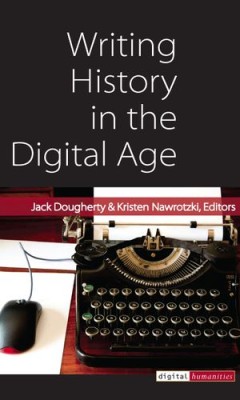
Writing History in the Digital Age
Writing History in the Digital Age began as a “what-if” experiment by posing a question: How have Internet technologies influenced how historians think, teach, author, and publish? To illustrate their answer, the contributors agreed to share the stages of their book-in-progress as it was constructed on the public web.To facilitate this innovative volume, editors Jack Dougherty and Kristen N…
- Edition
- -
- ISBN/ISSN
- 9780472900244
- Collation
- -
- Series Title
- -
- Call Number
- 809 NAW w
 Computer Science, Information & General Works
Computer Science, Information & General Works  Philosophy & Psychology
Philosophy & Psychology  Religion
Religion  Social Sciences
Social Sciences  Language
Language  Pure Science
Pure Science  Applied Sciences
Applied Sciences  Art & Recreation
Art & Recreation  Literature
Literature  History & Geography
History & Geography